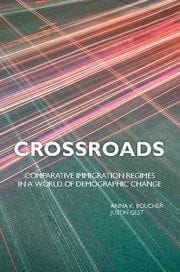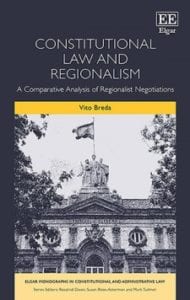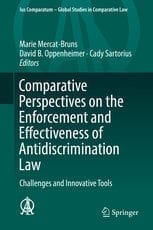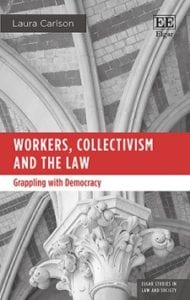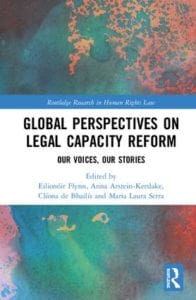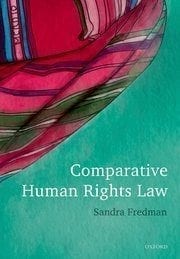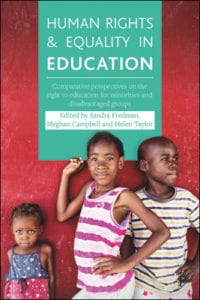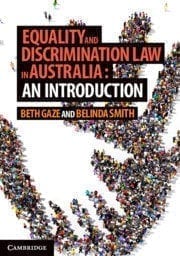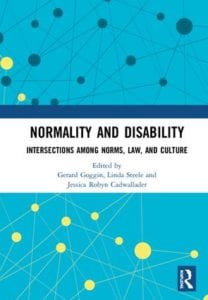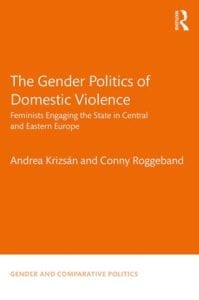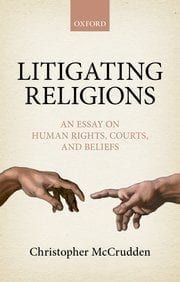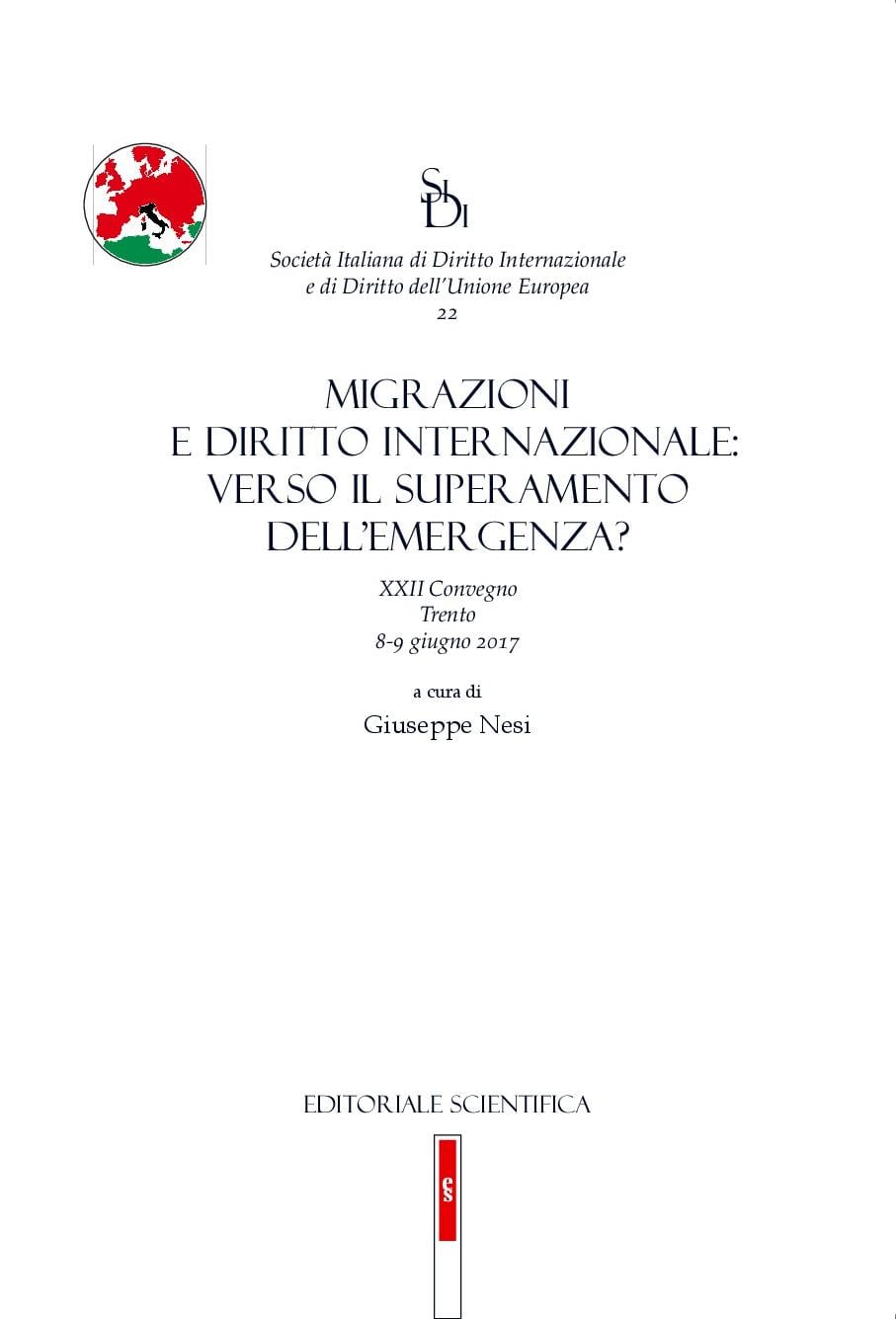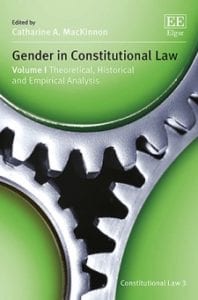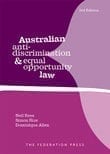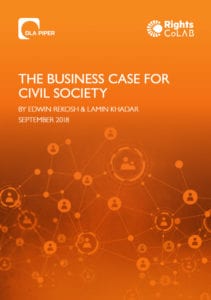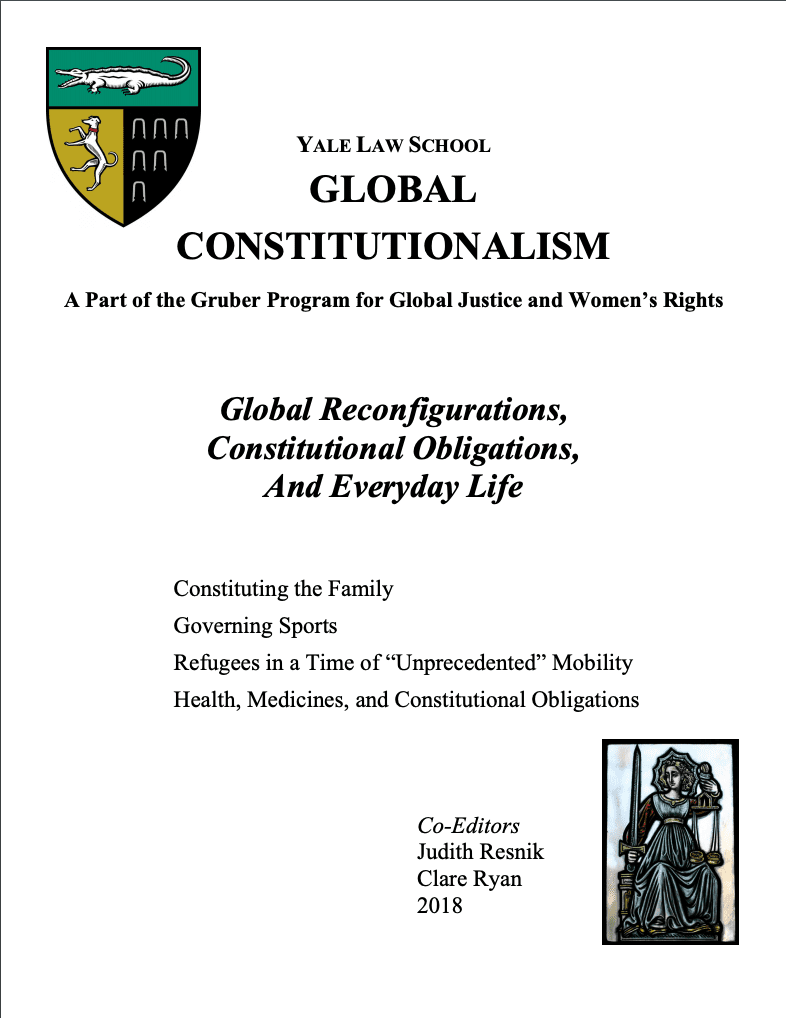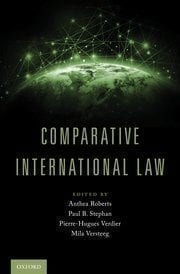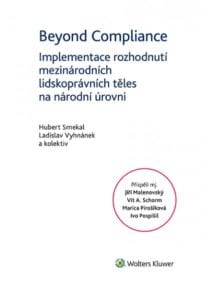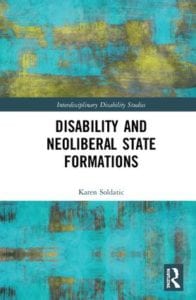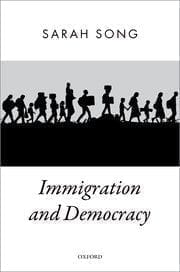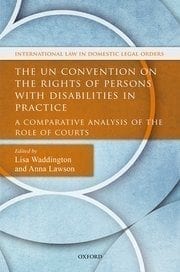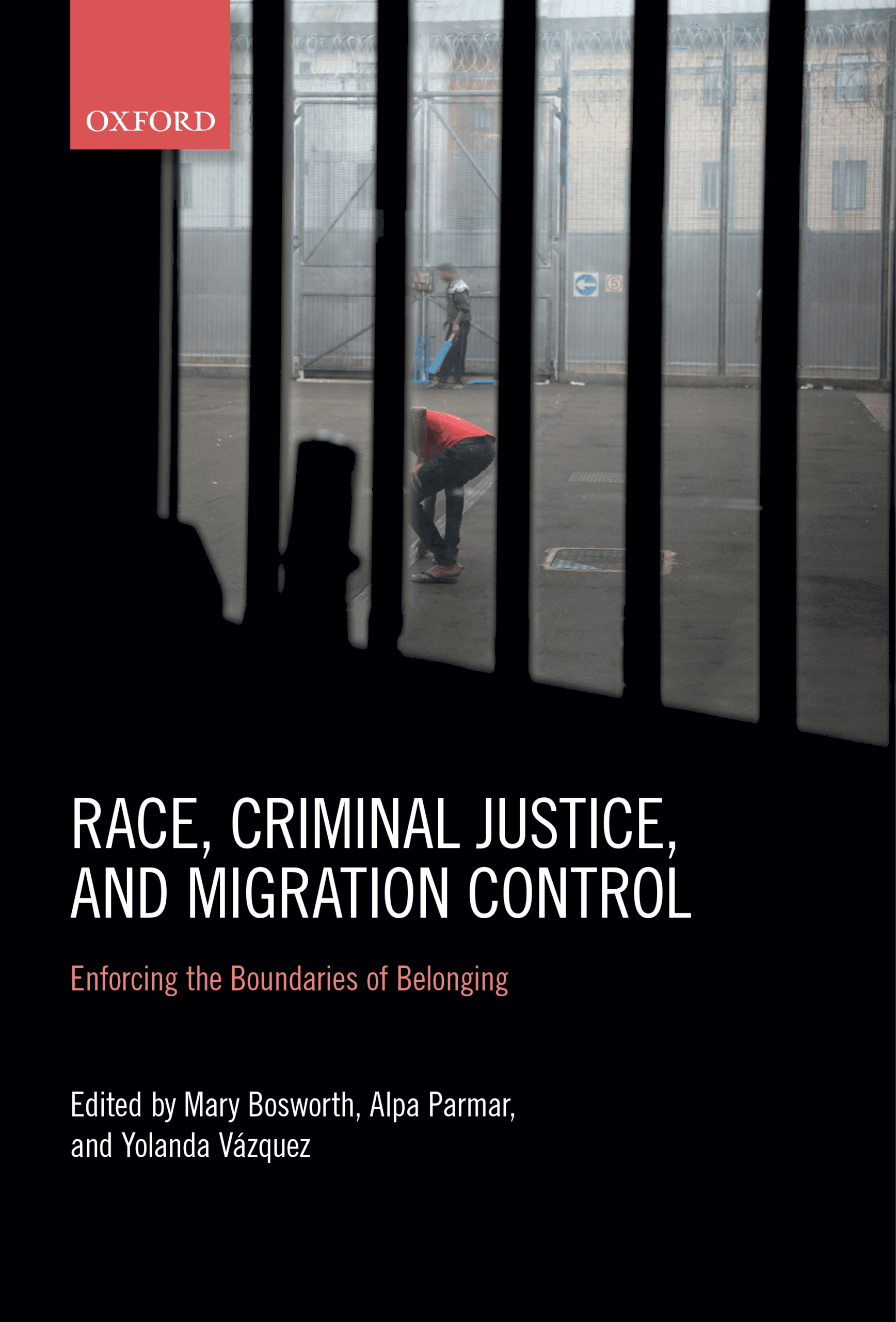Listed below are books written by our Center members, separated by publication year and alphabetically by author name.
International and European Labour Law, 2018
Authors: Edoardo Ales, Mark Bell, Olaf Deinert, Sophie Robin-Olivier
Publisher: Hart Publishing
Language: English
About: This volume includes an article-by-article analysis of key instruments in European and international labour law. It provides an invaluable resource for lawyers and scholars, offering insightful guidance on questions relating to the interpretation of legal texts; the case-law of the relevant international courts and commissions; and international scientific analysis of these legal instruments. The reader will find a quick systematic entry into the discussion thanks to the article-by-article approach.
The editors assembled an international team of more than 70 scientific specialists on international labour law instruments from a wide range of countries, most of them scholars in universities and other research institutes.
The book covers the whole field of labour law, ie fundamental questions, worker’s mobility, equality law, individual labour law, collective labour law and dispute resolution. Editors and authors have focused on European Union law, including all of the general labour law directives and regulations, as well as instruments with a wider scope insofar as they cover labour law, eg in the field of private international law or data protection. Furthermore, the book comprises analysis of the most relevant provisions of the European Convention on Human Rights, the European Social Charter and all the general labour law conventions from the ILO.
EU Anti-Discrimination Law beyond Gender, 2018
Authors: Uladzislau Belavusau, Kristin Henrard
Publisher: Hart Publishing
Language: English
About: The EU has slowly but surely developed a solid body of equality law that prohibits different facets of discrimination. While the Union had initially developed anti-discrimination norms that served only the commercial rationale of the common market, focusing on nationality (of a Member State) and gender as protected grounds, the Treaty of Amsterdam (1997) supplied five additional prohibited grounds of discrimination to the EU legislative palette, in line with a much broader egalitarian rationale. In 2000, two EU Equality Directives followed, one focusing on race and ethnic origin, the other covering the remaining four grounds introduced by the Treaty of Amsterdam, namely religion, sexual orientation, disabilities and age.Eighteen years after the adoption of the watershed Equality Directives, it seems timely to dedicate a book to their limits and prospects, to look at the progress made, and to revisit the rise of EU anti-discrimination law beyond gender. This volume sets out to capture the striking developments and shortcomings that have taken place in the interpretation of relevant EU secondary law. Firstly, the book unfolds an up-to-date systematic reappraisal of the five ‘newer’ grounds of discrimination, which have so far received mostly fragmented coverage. Secondly, and more generally, the volume captures how and to what extent the Equality Directives have enabled or, at times, prevented the Court of Justice of the European Union from developing even broader and more refined anti-discrimination jurisprudence. Thus, the book offers a glimpse into the past, present and – it is hoped – future of EU anti-discrimination law as, despite all the flaws in the Union’s ‘Garden of Earthly Delights’, it offers one of the highest standards of protection in comparative anti-discrimination law.
Crossroads Comparative Immigration Regimes in a World of Demographic Change, 2018
Authors: Anna K. Boucher, Justin Gest
Publisher: Cambridge University Press
Language: English
About: In this ambitious study, Anna K. Boucher and Justin Gest present a unique analysis of immigration governance across thirty countries. Relying on a database of immigration demographics in the world’s most important destinations, they present a novel taxonomy and an analysis of what drives different approaches to immigration policy over space and time. In an era defined by inequality, populism, and fears of international terrorism, they find that governments are converging toward a ‘Market Model’ that seeks immigrants for short-term labor with fewer outlets to citizenship – an approach that resembles the increasingly contingent nature of labor markets worldwide.
Constitutional Law and Regionalism A Comparative Analysis of Regionalist Negotiations, 2018
Authors: Vito Breda
Publisher: Edward Elgar Publishing
Language: English
About: This topical book analyses the practice of negotiating constitutional demands by regional and dispersed national minorities in eight multinational systems. It considers the practices of cooperation and litigation between minority groups and central institutions in Australia, Britain, Canada, New Zealand, Italy, Spain, and the U.S. and includes an evaluation of the implications of the recent Catalan, Puerto Rican and Scottish referenda. Ultimately, the author shows that a flexible constitution combined with a versatile constitutional jurisprudence tends to foster institutional cooperation and the recognition of the pluralistic nature of modern states
Comparative Perspectives on the Enforcement and Effectiveness of Anti-Discrimination Law, 2018
Authors: Mercat-Bruns, Marie, Oppenheimer, David B., Sartorius, Cady
Publisher: Springer International Publishing
Language: English
About: This book focuses on anti-discrimination law in order to identify commonalities and best practices across nations. Almost every nation in the world embraces the principle of equality and non-discrimination, in theory if not in practice. As the authors’ expert contributions establish, the sources of the principle vary considerably, from international treaties to religious law, traditions and more. There are many approaches to methods of enforcement and other variables, but the principle is nearly universal. What does a comparison of the laws and approaches across different lands reveal?
Readers may explore the enforcement and effectiveness of anti-discrimination law from 25 nations, across six continents. Esteemed authors examine national, regional and international systems looking for common and best practices, identifying innovative approaches to long-standing problems. The many ways that anti-discrimination law is enforced are brought to light, from criminal or civil prosecution through to community resolution processes, amongst others. Through comparing the approaches of different lands, the authors consider which methods of enforcement are effective.
These enriching national and international perspectives highlight the need for more creative, concrete and coordinated means of enforcement to ensure the effectiveness of anti-discrimination law, regardless of the legal tradition concerned, but in light of these traditions. Readers will find each nation remarkable, and learn something new and interesting from each report.
Women, Poverty, Equality: The Role of CEDAW, 2018
Authors: Meghan Campbell
Publisher: Hart Publishing
Language: English
About: The stark reality is that throughout the world, women disproportionately live in poverty. This indicates that gender can both cause and perpetuate poverty, but this is a complex and cross-cutting relationship.The full enjoyment of human rights is routinely denied to women who live in poverty. How can human rights respond and alleviate gender-based poverty? This monograph closely examines the potential of equality and non-discrimination at international law to redress gender-based poverty. It offers a sophisticated assessment of how the international human rights treaties, specifically the Convention on the Elimination of Discrimination Against Women (CEDAW), which contains no obligations on poverty, can be interpreted and used to address gender-based poverty. An interpretation of CEDAW that incorporates the harms of gender-based poverty can spark a global dialogue. The book makes an important contribution to that dialogue, arguing that the CEDAW should serve as an authoritative international standard setting exercise that can activate international accountability mechanisms and inform the domestic interpretation of human rights.
Workers, Collectivism and the Law Grappling with Democracy, 2018
Authors: Laura Carlson
Publisher: Edward Elgar Publishing
Language: English
About: Workers, Collectivism and the Law offers a captivating historical account of worker democracy, from its beginnings in European guild systems to present-day labor unions, across the national legal systems of Germany, Sweden, the United Kingdom and the United States. Analysing these legal systems in light of a Habermasian concept of participatory democracy, Laura Carlson identifies ways to strengthen individual employee voice in claims against employers.
Carlson highlights how employee voice and democracy, both collective and individual, assume different guises in each of these four labor law models. By tracing voice and democracy as components in the history of collective worker organizations, from guilds to journeymen associations to modern labor unions, Carlson demonstrates how history has shaped today’s national labor law models.
In the context of modern labor law’s central focus on human rights, Carlson articulates the need for stronger legal defence of mechanisms of transparency and procedural due process, to enhance voice and democracy for union members in invoking rights and asserting protections for workers.
This insightful book is indispensable reading for labor law academics and for those practicing in employment law, while those interested in the history of labor law will revel in its penetrating survey of the materials.
Foundations of Indirect Discrimination Law, 2018
Authors: Hugh Collins, Tarunabh Khaitan
Publisher: Hart Publishing
Language: English
About: Indirect discrimination (or disparate impact) concerns the application of the same rule to everyone, even though that rule significantly disadvantages one particular group in society. Ever since its recognition by the Supreme Court of the United States in 1971, liberal democracies around the world have grappled with the puzzle that it can sometimes be unfair and wrong to treat everyone equally. The law’s regulation of private acts that unintentionally (but disproportionately) harm vulnerable groups has remained extremely controversial, especially in the United States and the United Kingdom. In original essays in this volume, leading scholars of discrimination law from North America and Europe explore the various facets of the law on indirect discrimination, interrogating its foundations, history, legitimacy, purpose, structure, and relationship with other legal concepts. The collection provides the first international work devoted to this vital area of the law that seeks both to prevent unfair treatment and to transform societies.
EU Legal Acts: Challenges and Transformations, 2018
Authors: Marise Cremona, Claire Kilpatrick
Publisher: Oxford University Press
Language: English
About: In this collection of essays, originally presented at the Academy of European Law in Florence, the changing landscape of the EU’s legal acts is explored. Further to this, the changing boundaries between legal acts and processes which may create norms but do not create ‘law’ in the traditional sense are analysed.
This landscape is presented in two ways. Firstly, by focusing on the transformations and challenges to the EU’s traditional legal acts, in particular since the reconfiguration of the categories of legal acts and the procedures for which they are adopted by the Lisbon Treaty. Secondly, the collection focuses on those acts found at (or beyond) the margin of classic EU legal acts, including acts of Member States such as inter se treaties; self-regulation and collective agreements; so-called soft law; and decision-making outside the normal legislative procedures.
The volume endeavours to explain the adaptability of the EU legal order despite the fact that the legal instruments at the Union’s disposal have not fundamentally changed since the Treaty of Rome came into force 60 years ago. It explores the challenges that new decisional procedures and variations in the legal quality of EU acts pose for the EU’s legal order, including alterations to institutional balance and the roles of the different institutional actors and challenges to the rule of law.
Global Perspectives on Legal Capacity Reform: Our Voices, Our Stories, 2018
Authors: Eilionóir Flynn, Anna Arstein-Kerslake, Clíona de Bhailís, Maria Laura Serra
Publisher: Routledge
Language: English
About: This edited collection is the result of the Voices of Individuals: Collectively Exploring Self-determination (VOICES) based at the Centre for Disability Law and Policy, National University of Ireland Galway. Focusing on the exercise of legal capacity under Article 12 of the UN Convention on the Rights of Persons with Disabilities, the stories of people with disabilities are combined with responses from scholars, activists and practitioners, addressing four key areas: criminal responsibility, contracts, consent to sex, and consent to medical treatment. Sustainable law and policy reforms are set out based on the storytellers’ experiences, promoting a recognition of legal capacity and supported decision-making. The perspectives are from across a wide range of disciplines (including law, sociology, nursing, and history) and 13 countries. The volume is a valuable resource for researchers, academics and legislators, judges or policy makers in the area of legal capacity and disability. It is envisaged that the book will be particularly useful for those engaged in legal capacity law reform processes worldwide and that this grounded work will be of great interest to legislators and policy makers who must frame new laws on supported decision making in compliance with the UNCRPD.
Comparative Human Rights Law, 2018
Authors: Sandra Fredman
Publisher: Oxford University Press
Language: English
About: Courts in different jurisdictions face similar human rights questions. Does the death penalty breach human rights? Does freedom of speech include racist speech? Is there a right to health? This book uses the prism of comparative law to examine the fascinating ways in which these difficult questions are decided. On the one hand, the shared language of human rights suggests that there should be similar solutions to comparable problems. On the other hand, there are important differences. Constitutional texts are worded differently; courts have differing relationships with the legislature; and there are divergences in socio-economic development, politics, and history. Nevertheless, there is a growing transnational conversation between courts, with cases in one jurisdiction being cited in others. Part I sets out the cross-cutting themes which shape the ways judges respond to challenging human rights issues. It examines when it is legitimate to refer to foreign materials; how universality and cultural relativity are balanced in human rights law; the appropriate role of courts in adjudicating human rights in a democracy; and the principles judges use to interpret human rights texts. The book is unusual in transcending the distinction between socio-economic rights and civil and political rights. Part II applies these cross-cutting themes to comparing human rights law in the US, UK, South Africa, Canada, and India. Its focus is on seven particularly challenging issues: the death penalty, abortion, housing, health, speech, education and religion, with the aim of inspiring further comparative examination of other pressing human rights issues.
The Right to Education for Minority and Disadvantaged Children, 2018
Authors: Sandra Fredman, Meghan Campbell, Helen Taylor
Publisher: Policy Press
Language: English
About: Thousands of children from minority and disadvantaged groups will never cross the threshold of a classroom. What can human rights contribute to the struggle to ensure that every learner is able to access high quality education?
This brilliant interdisciplinary collection explores how a human rights perspective offers new insights and tools into the current obstacles to education. It examines the role of private actors, the need to hold states to account for the quality of education, how to strike a balance between religion, culture and education, the innovative responses needed to guarantee girls’ right to education and the role of courts.
This unique book draws together contributors who have been deeply involved in this field from both developing and developed countries which enriches the understanding and remedial approaches to tackle current obstacles to universal education.
Equality and Discrimination Law in Australia: An Introduction. 2018
Authors: Beth Gaze, Belinda Smith
Publisher: Cambridge University Press
Language: English
About: Equality and Discrimination Law in Australia: An Introduction explores four decades of anti-discrimination laws in Australia. Beth Gaze and Belinda Smith argue that effective laws protecting against and deterring discrimination are vital for a fair future, and emphasise the theoretical and social contexts that underpin this area of the law. The text is divided into three sections: the first addresses the social and conceptual context, history and framework of anti-discrimination laws; the second analyses the main elements of the law and the processes of enforcement; and the third explores broader avenues for pursuing equality beyond simply prohibiting discrimination. Written in a clear and concise style, Equality and Discrimination Law in Australia: An Introduction is a vital resource for students.
Normalcy and Disability: Intersections Among Norms, Law, and Culture, 2018
Authors: Gerard Goggin, Linda Steele, Jessica Robyn Cadwallader
Publisher: Routledge
Language: English
About: Hotly contested, normality remains a powerful, complex category in contemporary law and culture. What is little realized are the ways in which disability underpins and shapes the operation of norms and the power dynamics of normalization.
This pioneering collection explores the place of law in political, social, scientific and biomedical developments relating to disability and other categories of ‘abnormality’. The contributors show how law produces cultural meanings, norms, representations, artefacts and expressions of disability, abnormality and normality, as well as how law responds to and is constituted by cultures of disability. The collection traverses a range of contemporary legal and political issues including human rights, mercy killing, reproductive technologies, hate crime, policing, immigration and disability housing. It also explores the impact and ongoing legacies of historical practices such as eugenics and deinstitutionalization.
Of interest to a wide range of scholars working on normality and law, the book also creates an opening for critical scholars and activists engaged with other marginalized and denigrated categories, notably contesting institutional violence in the context of settler colonialism, neoliberalism and imperialism, to engage more richly and politically with disability. This book was originally published as a special issue of the Continuum journal.
The Gender Politics of Domestic Violence. Feminists Engaging the State in Central and Eastern Europe, 2018
Authors: Andrea Krizsán, Conny Roggeband
Publisher: Routledge
Language: English
About: What are the factors that shape domestic violence policy change and how are variable gendered meanings produced in these policies? How and when can feminists influence policy making? What conditions and policy mechanisms lead to progressive change and which ones block it or lead to reversal?
The Gender Politics of Domestic Violence analyzes the emergence of gender equality sensitive domestic violence policy reforms in Central and Eastern Europe (CEE). Tracing policy developments in Eastern Europe from the beginning of 2000s, when domestic violence first emerged on policy agendas, until 2015, Andrea Krizsán and Conny Roggeband look into the contestation that takes place between women’s movements, states and actors opposing gender equality to explain the differences in gender equality sensitive policy outputs across the region.
They point to regionally specific patterns of feminist engagement with the state in which coalition-building between women’s organizations and establishing alliances with different state actors were critical for achieving gendered policy progress. In addition, they demonstrate how discursive contexts shaped by democratization frames and opposition to gender equality, led to differences in the politicization of gender equality, making gender friendly reforms more feasible in some countries than others.
Litigating Religions: An Essay on Human Rights, Courts, and Beliefs, 2018
Authors: Christopher McCrudden
Publisher: Oxford University Press
Language: English
About: Religions are a problem for human rights, and human rights are a problem for religions. And both are problems for courts. This book presents an interpretation of how religion and human rights interrelate in the legal context, and how this relationship might be reconceived to make this relationship somewhat less fraught. Litigating Religions, an essay adapted by Christopher McCrudden from the Alberico Gentili Lectures given at the University of Macerata, Italy, examines how the resurgent role of religion in public life gives rise to tensions with key aspects of human rights, in particular freedom of religion and anti-discrimination law, and how these tensions cannot be considered as simply transitional. The context for the discussion is the increasingly troubled area of human rights litigation involving religious arguments, such as wearing religious dress at work, conscientious objections by marriage registrars, admission of children to religious schools, prohibitions on same-sex marriage, and access to abortion. Christopher McCrudden argues that, if we wish to establish a better dialogue between the contending views, we must address a set of recurring problems identifiable in such litigation. To address these problems requires changes both in human rights theory and in religious understandings.
Migrazioni e diritto internazionale: verso il superamento dell'emergenza? 2018
Authors: Giuseppe Nesi
Publisher: Napoli: Editoriale Scientifica
Language: Italian
About: N/A
Gender in Constitutional Law, 2018
Authors: Catharine A. MacKinnon
Publisher: Edward Elgar Publishing
Language: English
About: Gender in Constitutional Law is a comprehensive three-volume collection of formative and influential scholarship in a dynamic area of legal development and social change. Compiling theoretical, empirical, and practical analyses from leading scholars, judges, and nongovernmental organizations around the world, these volumes are comparative and international in range, representative in content, and illuminating in depth. Particular attention is paid to intersectionality, culture, and custom. Mapped by an accessible, incisive introductory chapter, the collection provides basic sources and cutting-edge guidance in constitutional processes. The assembled curated works, together with the introduction, offer an invaluable cross-disciplinary research tool for generalists and specialists, scholars and practitioners, thinkers and activists, students, teachers, individuals and groups alike.
Australian Anti-Discrimination and Equal Opportunity Law, 2018
Authors: Neil Rees, Simon Rice, Dominique Allen
Publisher: The Federation Press
Language: English
About: This new edition of Australia’s most comprehensive book on anti-discrimination law has been fully revised and updated, re-written and reformatted to enhance its accessibility. It continues to offer both a substantial text for a specialist audience, and a powerful critique of anti-discrimination law in Australia. The authors support their analysis and explanation of legislation and case law with carefully selected extracts from a broad range of decisions, law reform reports, and academic writers and commentators.
The Business Case for Civil Society, 2018
Authors: Edwin Rekosh, Lamin Khadar
Publisher: Rights CoLab
Language: English
About: Now more than ever, businesses have strong incentives to take seriously their responsibility to respect human rights. Human rights developments can spark stock price fluctuations, negative consumer attitudes and loud employee demands to take action. CEOs want to know how they should respond to human rights issues, and company directors are grappling with the same question in boardrooms across the world.
In developing their human rights policies and processes, companies have come to depend upon civic freedoms that enable civil society — citizens acting both individually and collectively — to reveal human rights impacts. Civic freedoms — including freedoms of expression, association, information and assembly — allow citizens to ask questions, express opinions, propose solutions to social problems, and press their own governments to keep commitments to protecting human rights.
The “Business Case for Civil Society,” explores reasons why it is in the best interest of companies to take action in support of civil society, especially when civil society is under pressure.
The report highlights eight arguments, backed by evidence, of the business case to support civil society:
Civic freedoms advance economic growth
Civic freedoms produce innovation
Civil society reduces the cost of corruption
Civil society organizations help businesses to be sustainable
Supporting civil society can help manage risks relating to operational costs
Supporting civil society can enhance customer relationships
Supporting civil society can enhance investor relationships
Supporting civil society can enhance employee relationships”
Global Constitutionalism 2018: Global Reconfigurations, Constitutional Obligations, And Everyday Life, 2018
Authors: Judith Resnik, Clare Ryan
Publisher: Yale Law School
Language: English
About: Global Reconfigurations, Constitutional Obligations, and Everyday Life is now available as an e-book, to download without charge. This 2018 volume is the seventh in the series of readings for Yale’s Global Constitutionalism Seminar, a part of the Gruber Program for Global Justice and Women’s Rights. This year’s materials are co-edited by Judith Resnik and Clare Ryan. Chapter I, Constituting the Family, considers how constitutional regulation of families has come to the fore in light of demographic shifts, popular mobilizations, gender roles, and reproductive technologies. This Chapter’s questions center on when and why constitutions oblige state recognition and protection of adult relationships (through marriages and civil unions) and of parental status and authority. Chapter II, Governing Sports, engages with how to conceptualize sports organizations, which are protective of their autonomy, but nevertheless influenced by constitutional norms of free expression and association, equality, non-discrimination, and due process. National and international laws increasingly permeate the governance of sports, as the tribunals within sports organizations interact with and adopt legal rules to respond to the problems of corruption, drug use, monopolistic practices, and governance failures. Chapter III, Refugees in a Time of “Unprecedented” Mobility, addresses the “unprecedented” numbers of persons seeking safe havens across borders—25.4 million people globally as of June 2018, according to the UN Refugee Agency. This Chapter takes up debates about who gains the status of “refugee” as contrasted with “migrant,” what international obligations flow, and why many countries are seeking to deter, block, or detain entrants seeking a safer haven. Chapter IV, Health, Medicines, and Constitutional Obligations, considers the role of courts in enforcing rights to medicine, and whether this arena of economic and social rights entails distinct or familiar questions of judicial enforcement. In recent years, courts in several countries have concluded that state failures to provide medicines violate constitutional rights to health and, moreover, that courts can and should order group-based or individual remedies. This Chapter addresses who decides—courts, legislatures, health administrators—what medicines are subsidized and accessible, as well as the distributional impacts of such rulings.
Comparative International Human Rights Law: a Justification and an Agenda for the Future in Comparative International Law, 2018
Authors: Anthea Roberts, Paul Stephan, Pierre-Hugues Verdier, Mila Versteg
Publisher: Oxford University Press
Language: English
About: Our study group member Christopher McCrudden has authored a chapter on international human rights in current discussion of comparative international law, distinguishing comparative international human rights law from both the ‘fragmentation’ literature, and from comparative constitutional rights discourse.
Beyond Compliance – Implementace rozhodnutí mezinárodních lidskoprávních těles na národní úrovni, 2018
Authors: Hubert Smekal, Ladislav Vyhnánek
Publisher: Wolters Kluwer
Language: Czech
About: N/A
Disability and Neoliberal State Formations, 2018
Authors: Karen Soldatic
Publisher: Routledge
Language: English
About: Disability and Neoliberal State Formations explores the trajectory of neoliberalism in Australia and its impact on the lives of Australians living with disability, including Aboriginal and Torres Strait Islander peoples. It examines the emergence, intensification and normalisation of neoliberalism across a 20-year period, distilling the radical changes to disability social security and labour-market law, policy and programming, and the enduring effects of the incremental tightening of disability eligibility carried out by Australian governments since the early 2000s.
Incorporating qualitative interviews with disabled people, disability advocates, services and the policy elite, alongside extensive documentary material, this book brings to the fore the compounding effects of neoliberal reforms for disabled people’s wellbeing and participation. The work is of international significance as it illustrates the importance of looking beyond the UK, EU and the USA to critically understand the historical development and policy mobility of disability neoliberal retraction from smaller economies, such as Australia, to the global economic centre.
Immigration and Democracy, 2018
Authors: Sarah Song
Publisher: Oxford University Press
Language: English
About: Immigration is one of the most polarizing issues in contemporary politics. It raises questions about identity, economic well-being, the legitimacy of state power, and the boundaries of membership and justice. How should we think about immigration and what policies should democratic societies pursue?
Some contend that borders should generally be open and people should be free to migrate in search of better lives. Others insist that governments have the right to unilaterally close their borders and should do so. In Immigration and Democracy, Sarah Song develops an intermediate ethical position that takes seriously both the claims of receiving countries and the claims of prospective migrants. She argues that political membership is morally significant, even if morally arbitrary. Political membership grounds particular rights and obligations, and a government may show some partiality toward the interests of its members. Yet, we also have universal obligations to those outside our orders. Where prospective migrants have urgent reasons to move, as in the case of refugees, their interests may trump the less weighty interests of members. What is required is not open or closed borders but open doors.
An accessible ethical framework that clarifies and deepens the ideas with which members of democratic societies can debate immigration, Immigration and Democracy considers the implications of a realistically utopian theory for immigration law and policy.
The Case for an International Court of Civil Justice, 2018
Authors: Maya Steinitz
Publisher: Cambridge University Press
Language: English
About: When multinational corporations cause mass harms to lives, livelihoods, and the environment in developing countries, it is nearly impossible for victims to find a court that can and will issue an enforceable judgment. In this work, Professor Maya Steinitz presents a detailed rationale for the creation of an International Court of Civil Justice (ICCJ) to hear such transnational mass tort cases. The world’s legal systems were not designed to solve these kinds of complex transnational disputes, and the absence of mechanisms to ensure coordination means that victims try, but fail, to find justice in country after country, court after court. The Case for an International Court of Civil Justice explains how an ICCJ would provide victims with access to justice and corporate defendants with a non-corrupt forum and an end to the cost and uncertainty of unending litigation – more efficiently resolving the most complicated types of civil litigation.
The UN Convention on the Rights of Persons with Disabilities in Practice, 2018
Authors: Lisa Waddington, Anna Lawson
Publisher: Oxford University Press
Language: English
About: Introduced in 2008, the UN Convention on the Rights of Persons with Disabilities has existed for nearly a decade. This comprehensive study examines how courts in thirteen different jurisdictions make use of the Convention. The first sustained comparative international law analysis of the CRPD, Waddington and Lawson’s ground breaking text illuminates the intersection between human rights law, disability law and international law through an examination of the role of courts. The first part of the book contains chapters specific to each jurisdiction. The second part consists of comparative chapters which draw on the rich analysis of the jurisdiction-specific chapters. These chapters reflect on emerging patterns of judicial usage and interpretation of the CRPD and on the wider implications for human rights theory and the nascent field of international comparative human rights law. This volume is a vital and thought-provoking addition to the literature on comparative international law and disability rights.
Race, Criminal Justice and Migration Control
Authors: Mary Bosworth, Alpa Parmar, Yolanda Vazquez
Publisher: Oxford University Press
Language: English
About: A collection of essays that considers how societal practices, laws, and criminal justice institutions delineate who belongs and who does not, and how these factors affect racial minorities across the world, in strikingly uneven ways. Brings race to the centre of its analysis in order to reveal how migration and its control is inherently racialized
Demonstrates how the architecture of legislation, the process of criminal justice, and the institutions of criminal justice and border control conspire and coalesce to grant some people citizenship, while denying it to others
Essential reading for lawyers, criminologists, criminal justice practitioners, migration scholars, and sociologists, as well as general readers approaching the topic for the first time


